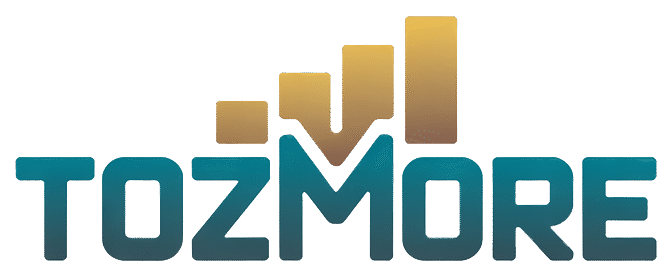
Hey, so you’ve been thinking about investing, huh? Maybe you’ve heard your friends talk about buying stocks or that cool app that lets you invest with just a few bucks, but honestly, you’re not quite sure where to start. I get it. The whole investing world can feel like this big, complicated beast, and sometimes you just wanna throw your hands up and say, “Forget it, I’ll just stick to saving in my checking account.”
But here’s the thing: investing doesn’t have to be scary or just for the super-rich or finance geeks. If you’re in the U.S. and you’re ready to take a first step in 2025, I want to walk you through some solid, beginner-friendly options. No fancy Wall Street talk, just what works, what to watch out for, and how you can start growing your money, even if you’re juggling debt or living paycheck to paycheck.
Why Invest at All? (Because Saving Alone Isn’t Enough)
First off, I wanna be real with you — saving money is great, but in today’s world, just stashing cash in a savings account isn’t gonna cut it if you want to keep up with inflation or actually grow your wealth.
Take my buddy Lisa. She used to keep everything in her savings account, but over the years, inflation slowly ate away at her buying power. It wasn’t until she started investing a little bit here and there that she saw her money actually grow.
The good news is, you don’t need a ton of money to start investing, and you don’t need to be an expert either. Let’s break down the best ways for beginners in the U.S. to get started in 2025.
1. Index Funds and ETFs: The “Set It and Forget It” Champs
If you’re asking me where to put your first investment dollar, my answer is usually index funds or ETFs (exchange-traded funds). They’re basically baskets of stocks that track an entire market or sector.
Why do I recommend these? Because:
- They’re super diversified, so your risk is spread out.
- They tend to have lower fees compared to buying individual stocks.
- You don’t have to pick the “right” stocks — the whole market moves generally upward over time.
My friend Carlos was totally new to investing and decided to put $100 a month into an S&P 500 index fund using an app like Vanguard or Fidelity. He didn’t stress over daily ups and downs and just kept adding steadily. Fast forward a few years, and he’s already built a nice little nest egg.
Ojo con esto: Watch out for fees — some ETFs charge higher management fees, and those fees eat into your returns over time.
2. Robo-Advisors: When You Want Help Without Hiring a Human
Not into picking funds yourself? No worries. Robo-advisors like Betterment or Wealthfront are online services that build and manage a diversified portfolio for you based on your goals and risk tolerance.
The truth is, they’re great for beginners because:
- They do the heavy lifting of asset allocation.
- They automatically rebalance your portfolio.
- They often have lower minimum investment requirements.
Just a heads-up, there is a small management fee (usually less than 0.5%), but for most beginners, that’s a fair price to pay for peace of mind.
3. Retirement Accounts: Your Best Friend for Tax Benefits
If you don’t already have an IRA or a 401(k), 2025 is a perfect year to open one. These accounts give you tax breaks that help your money grow faster.
- 401(k): If your employer offers one and matches contributions, try to contribute at least enough to get the full match. It’s literally free money.
- Roth IRA: You contribute after-tax dollars, but your earnings grow tax-free, and qualified withdrawals are tax-free too.
My cousin Janet maxed out her Roth IRA every year and swears by it. The tax advantages mean more money stays in her pocket over the long haul.
4. Fractional Shares: Invest Without Breaking the Bank
You don’t need thousands to buy stock in big companies like Apple or Amazon anymore. Apps like Robinhood, M1 Finance, or Public let you buy fractional shares — that means you can invest just $5 or $10 in companies you believe in.
This is great if you’re just starting and don’t want to put a lot in upfront, but want to get familiar with how the market works.
Just remember, don’t get tempted to “play the market” like a casino — slow and steady wins the race here.

5. Real Estate Crowdfunding: Dip Your Toes in Property
If owning physical property sounds overwhelming, real estate crowdfunding platforms like Fundrise or RealtyMogul let you invest smaller amounts in real estate projects.
It’s a cool way to diversify beyond stocks, but keep in mind these investments tend to be less liquid (meaning you can’t just pull out your money whenever you want).
Common Mistakes New Investors Make (And How to Avoid Them)
- Trying to time the market: The market goes up and down all the time. Trying to buy low and sell high perfectly? Almost impossible. Instead, focus on consistent investing.
- Ignoring emergency savings: Don’t put money into investments if you don’t have a 3-6 month emergency fund. Life happens.
- Overlooking fees: High fees can crush your returns over time.
- Following hype: Just because everyone’s talking about a “hot stock” or crypto doesn’t mean it’s a good investment for you.
My friend Mike once put a bunch of money into a trendy tech stock based on a YouTube video, and it tanked. Now he’s more cautious and sticks to solid, diversified investments.
Resources to Help You Learn and Grow
If you want to dive deeper, these books and apps helped me and many others figure things out:
- Books: “The Simple Path to Wealth” by JL Collins, “I Will Teach You to Be Rich” by Ramit Sethi
- Apps: Robinhood, M1 Finance, Betterment, Mint (for budgeting)
- Websites: Investopedia, The Motley Fool
Wrapping It Up: Start Small, Stay Consistent, and Don’t Stress
Look, the most important thing is to start. Even if you only put $50 or $100 a month into an index fund or a robo-advisor, you’re ahead of most people who never take that step.
Remember, investing is a marathon, not a sprint. There will be ups and downs — I’m not going to lie to you — but over time, your money can grow and give you freedom you might not have imagined.
So go ahead, take a breath, open that app or account, and take control of your financial future. You’ve got this.
